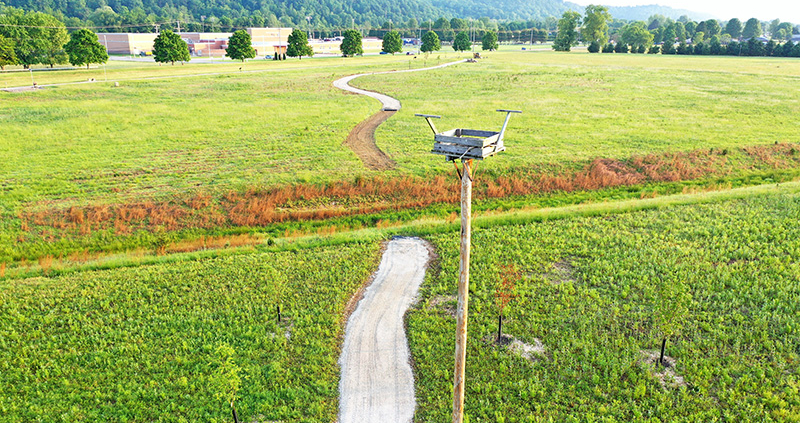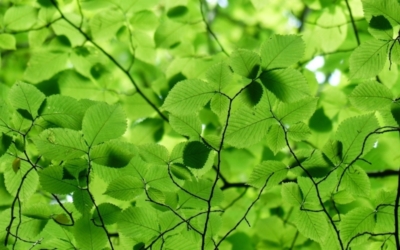WHC presents 2022 Ibis Award to Toyota Motor Manufacturing, West Virginia
BETHESDA, MD, November 14, 2022 – WHC (Wildlife Habitat Council) has announced the winner of the 2022 Ibis Award — Toyota Motor Manufacturing, West Virginia (TMMWV), located in Buffalo, West Virginia. The Ibis Award recognizes a WHC-certified program that has demonstrated resiliency of spirit and advancement of conservation despite unforeseen or unique challenges.
“In 2015, Toyota announced the Toyota Environmental Challenge 2050 – a set of six visionary challenges that seek to make a game-changing contribution to some of the most critical environmental issues facing the world today,” said Amanda Williams, Environmental Engineer at TMMWV. “Working with WHC on Challenge 6 (In Harmony with Nature) has been a way to show our commitment to the environment through community outreach and by setting aside spaces that encourage balanced ecosystems where wildlife can thrive. We are extremely grateful to receive the Ibis Award from the Wildlife Habitat Council and to be recognized for our continuous commitment to the environment.”
Toyota’s site includes forest and wetland habitats, and employees have maintained a pollinator garden in addition to bird houses, bat houses and a raptor nesting platform to support avian species in the area. The Toyota team also built an outdoor classroom on-site, where they educate students from nearby schools about the needs of local species and migratory birds.
When the COVID-19 pandemic shut down in-person schooling, TMMWV recognized that, since they could not utilize the outdoor classroom for outreach, they would instead shift the space from an immersive site for learning to a larger habitat for pollinators.
The TMMWV team planted nine acres of pollinator host species as well as 18 new tree species throughout the area. In addition to these new plants, employees also added 15 new bird houses, constructed two new walking trails, built an apiary to support local bees and added new interpretive signage to the site. They also worked with the West Virginia Department of Natural Resources to host a pollinator workshop where private landowners learned how to build their own pollinator habitats. Once restrictions due to COVID-19 were lifted and visitors could once again frequent the site, the team found that their efforts left them with a more robust program.
“The Toyota team exemplified resilience in the face of challenges by using shutdowns as an opportunity to grow their program,” said WHC President Margaret O’Gorman. “By leaning into their strengths, the Toyota West Virginia team has made great gains for biodiversity and for their local community.”
About WHC:
For over 30 years, WHC has been promoting and certifying ecological stewardship action on corporate lands through partnerships and education. Since only 10-15% of the world’s land surface is protected, private lands provide an essential opportunity for restoring and protecting biodiversity. As the only international conservation NGO focused exclusively on the private sector, WHC provides a framework for voluntary conservation action on a wide variety of corporate lands. WHC’s corporate members represent some of the leading national and multinational corporations seeking to support sustainable ecosystems and the communities that surround them. These efforts have resulted in more than 1,000 certified programs across 47 states and 28 countries.


